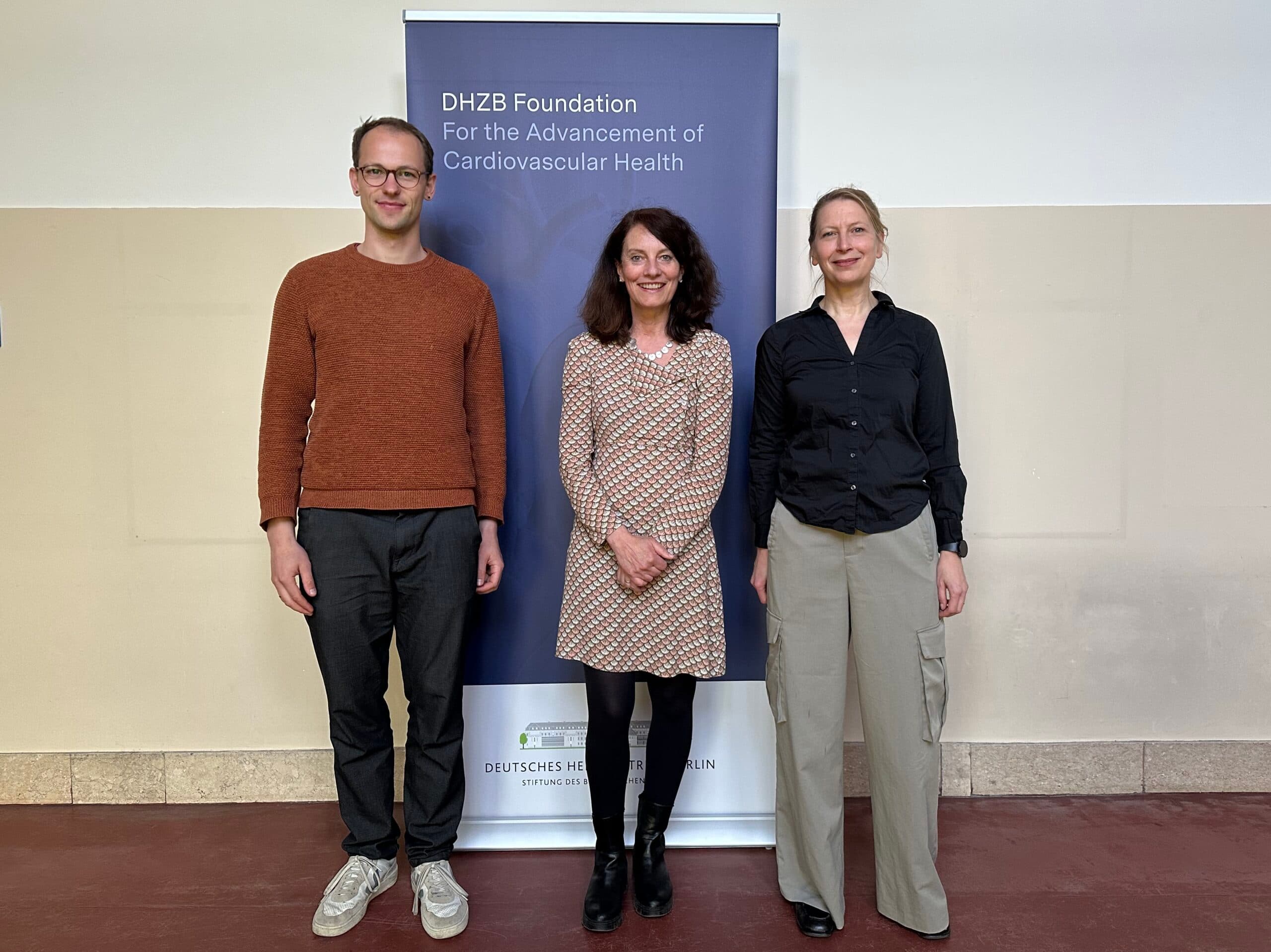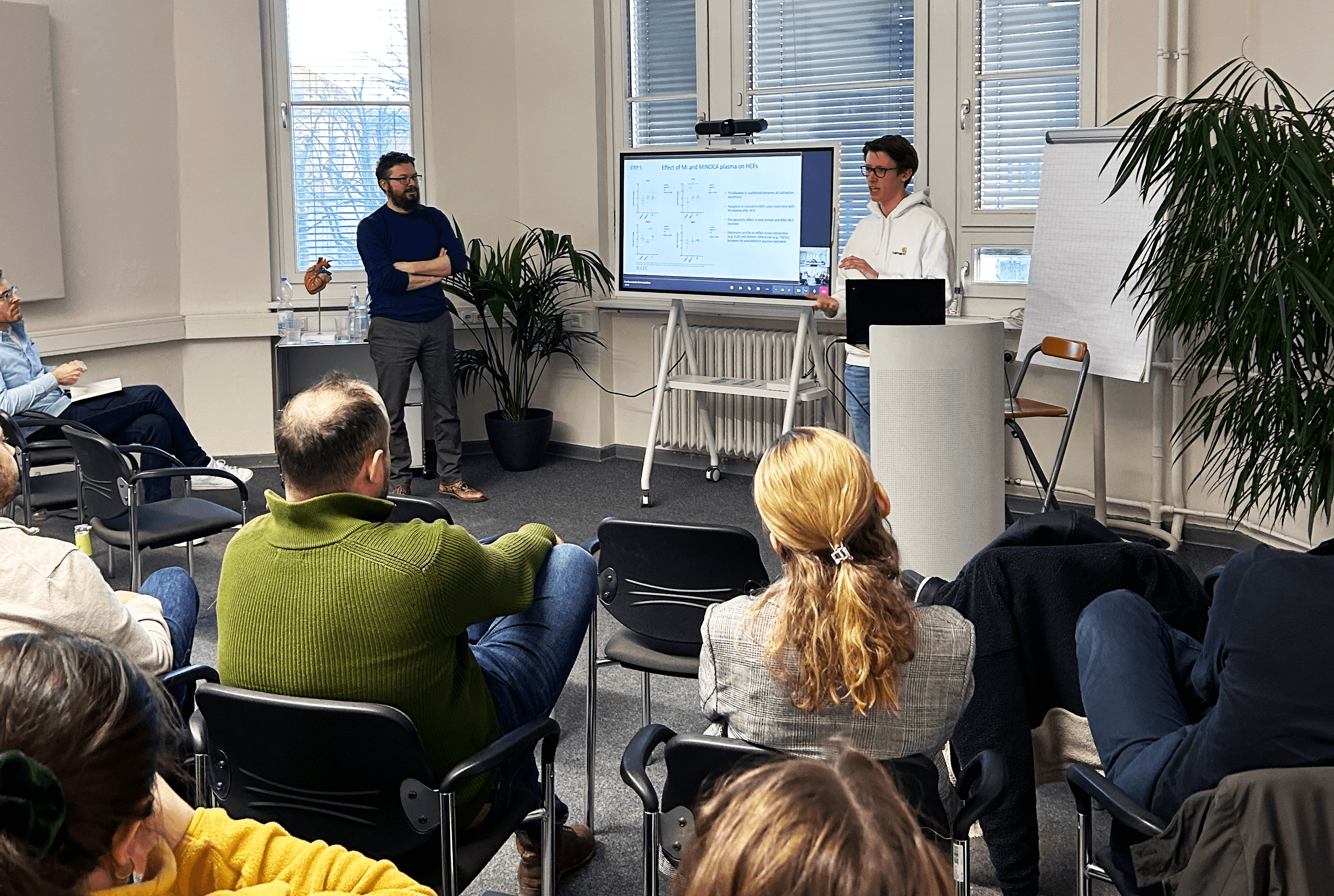For around 60 attendees from cardiology, research, and industry, Prof. Ellinor provided insights into his current research findings. He placed particular emphasis on the topic of aortic aneurysm, a condition that is estimated to cause the deaths of approximately 150,000 people worldwide each year. To improve individual risk prediction for developing an aortic aneurysm, he and his team are developing the AORTA-Gene model. This model leverages integrated clinical and genomic data using machine learning and has demonstrated significantly higher predictive performance in current studies compared to traditional clinical risk factors alone.
Prof. Ellinor earned his MD and PhD at Stanford University and completed his clinical training at Brigham and Women’s Hospital. He went on to specialize in cardiology and cardiac electrophysiology at Massachusetts General Hospital (MGH), where he joined the Cardiac Arrhythmia Service and Cardiovascular Research Center in 2003. He is also a Professor of Medicine at Harvard Medical School and is regarded as a pioneer in the field of molecular mechanisms underlying cardiac rhythm disorders and heart function.
His lecture was part of a two-day visit to Berlin, during which the focus was on strengthening the strategic partnership between the DHZC and Mass General Brigham (MGB). In addition to intensive discussions with the clinical and research leadership of the DHZC as well as representatives of the DHZB Foundation, Prof. Ellinor took the opportunity to learn more about a number of DHZC research initiatives.
The DHZC and MGB are among the world’s leading centers for cardiovascular medicine. Both institutions manage large patient cohorts across all major cardiac indications. Through their deepening collaboration, they see significant potential for joint research, innovation, and the advancement of clinical care — including through technologies such as artificial intelligence.
We extend our heartfelt thanks to Prof. Ellinor for an inspiring and enriching visit.


